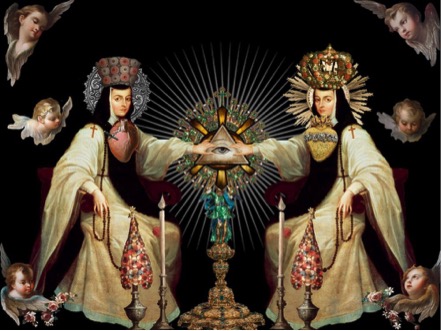
Three centuries after Sor (Spanish: Sister) Juana’s death we ask ourselves whether we have developed as a society to guarantee the rights to education, knowledge and gender equality.
On the 17th of April 1695 at 4 in the morning, Sor Juana Inés de la Cruz died, “the worse nun in the world” as she called herself. She was born on the 12th of November 1651, she was hardly 43 years old when she fell ill during an epidemic that decimated the convent of San Jerónimo in Mexico city, (it is not clear if it was a yellow fiver or typhus epidemic). She had abandoned her studies and writing for more than a year. However, 4 years earlier, she had written the Reply to Sister Filotea of the Cross (“Respuesta a Sor Filotea de la Cruz”), a magnificent, wise and daring argumentation in favour of women’s rights to education and knowledge, gender equality and freedom of speech.
Hispanic expert Irving A. Leonard recounts the hostile circumstances that Sor Juana experienced in her life. In 1600, an intellectual revolution was taking place in Europe with the beginning of the Enlightenment. Nevertheless, the New Spain refused to change and its clergy kept mending the medieval vail that had been torn already by Kepler and Galileo.
Leonard narrates that in 1690, “Sor Juana was urged to write a clever critique of some ideas long expressed in a sermon by the famous Portuguese Jesuit preacher Antonio Vieira. The bishop of Puebla, Manuel Fernandez de Santa Cruz, evidently admired her mastery in the use of the neo-scholastics methods and had it publish. However, at the same time he wrote a letter to Sor Juana, as a prologue to the publication and under the name of ‘Sor Filotea’, in which he admonished her for abandoning religious literature and her affection for secular studies. ‘Your grace has spent too much time studying philosophers and poets, it is about time to improve the tasks and select better books’. Clearly, this was disapproval from the highest ranks…” (The Baroque in colonial Mexico, “La época barroca en el México colonial”, 1959).
Her thoughtful response to Sor Filotea de la Cruz is dated months later, on the 1st of March 1691. It is an argumentation that combines humility and audacity, “with the truthfulness and clarity that are always a custom and natural in my person”.
REFUSAL TO BE SILENT
“I acknowledge that your sensible admonition is not against the critique but against the vast amount of human matters I have written about…”
“I confess that I find myself far away from wisdom and that I have desired it, if only from the distance. No sooner have I approached myself to the fire of persecution, to the diverse torments with such intensity that some have requested that I was forbidden to study.”
“I don’t want to say (I wouldn’t say such nonsense) that I have been prosecuted for knowing, but only because of my passion for knowledge and humanities, not because I had achieved one nor the other”.
Sor Juana, Letter worthy of Athenea:
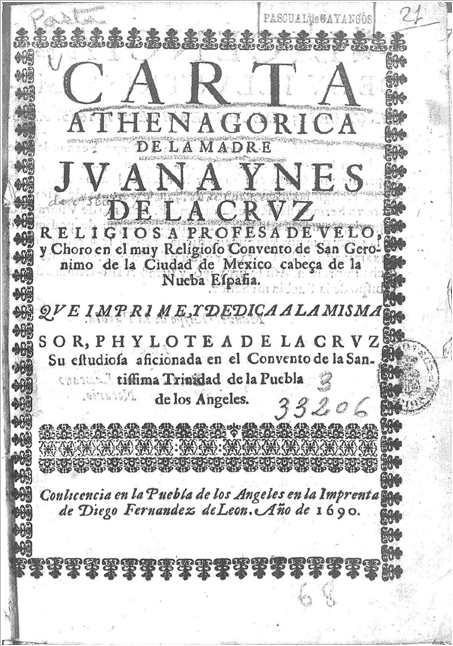
GOODWILL TO KNOW
“I do not study in order to write, and even less to teach (which, in me, would be excessive arrogance) but rather only to see if by studying I become less ignorant. This is my reply and this is how I feel it.”
Since she was a child, “the thirst for knowledge was stronger than the desire to eat”
During her youth, “hair grew quickly but I learned slowly and I affectionately cut it off… it did not seem right to me that a head so naked of knowledge should be adorned with hair, for knowledge is a more desirable ornament”
“I entered a religious order because […] given my total disinclination to marriage, this was the least disproportionate and the most respectable choice with regard to my desire for the safeguard of my salvation […] to want to live on my own […] to want not to have any obligatory duties that would hinder my freedom to study, nor to hear the community noises that would interrupt the piece and quiet of my books”
“I thought I was escaping from myself, miserable me!, I secluded myself in the convent and brought with me my biggest enemy for this vocation (the desire to learn), that I cannot discern weather it is a gift or a punishment from Heaven, since the religion’s exercise of attachment and commitment is such that could have extinguished or hampered it, instead, it exploded like gunpowder, I was proof that Privatio est causa appetitus (deprivation causes appetite)”.
A very saint and candid prelate believed that studies were a thing of the Inquisition and ordered me not to study. I obeyed her (the few 3 months that her power to command lasted), as for not holding a book, or studying absolutely nothing, not having the power to do so, I cannot do it because […] I was studying in all God’ creations, offering me all the universe machinery in letters, and books. I could not see anything without reflection, nor could I hear without consideration.”
”What could I tell you, my lady, of the secrets of Nature that I have discovered while cooking? […] Had Aristoteles cooked, he would have written much more”.
Of course, “there are some that study to ignore, especially those with arrogant spirits […] it is like placing a sword into raging hands […] those malevolent, the more they study, the worse opinions they conceive. Their understanding becomes obstructed with the same that was expected to feed them, and this is because they study a lot, but digest little”.
“All of the above requires more explanation than some might think, who, just because they are grammarians or with just four of Súmulas principles, want to interpret the Scriptures ignoring how it is to be understood, and clung to the Mulieres in Ecclesüs taceant» (they say: women, remain silent in churches; but the real sense is: women will not indoctrinate while the apostles preach).
Octavio Paz explains Sor Juana’s passion for knowledge: “Such statement has to be understood in its true sense: by knowledge he refers not only to sciences and philosophy, but also what in those time was knows as arts or humanities and encompasses in the first instance the Classics”. (Sor Juana Inés de la Cruz or the Traps of Faith, «Sor Juana Inés de la Cruz o Las trampas de la fe», 1982).
LOVE FOR THE LETTERS
“What it is indeed the truth and I will not deny it (firstly because it is obvious to everyone and secondly because, even against my will, God has gifted me with the immense love for the truth) which, since the first light of reason dawned on me, so intense and powerful was my inclination to letters that neither external repressions of which I have had many, nor self-reflections of which I have done a little, have been sufficient for me to stop pursuing this natural impulse that God graced me with”. Such reasoning that “according to some, is unnecessary in a woman, and some even say it is harmful”.
In the convent, “I pursued the laborious task of reading and reading more, of studying and studying more (which for me was a respite in the sparse time from my obligations) with no teacher but the books themselves […] all of this work I endured happily for the love of the letters”.
«This explains clearly the strength of my inclinations. Bless be God that he wished it was towards the arts and not towards any other vice”.
True copy from Sor Juana:
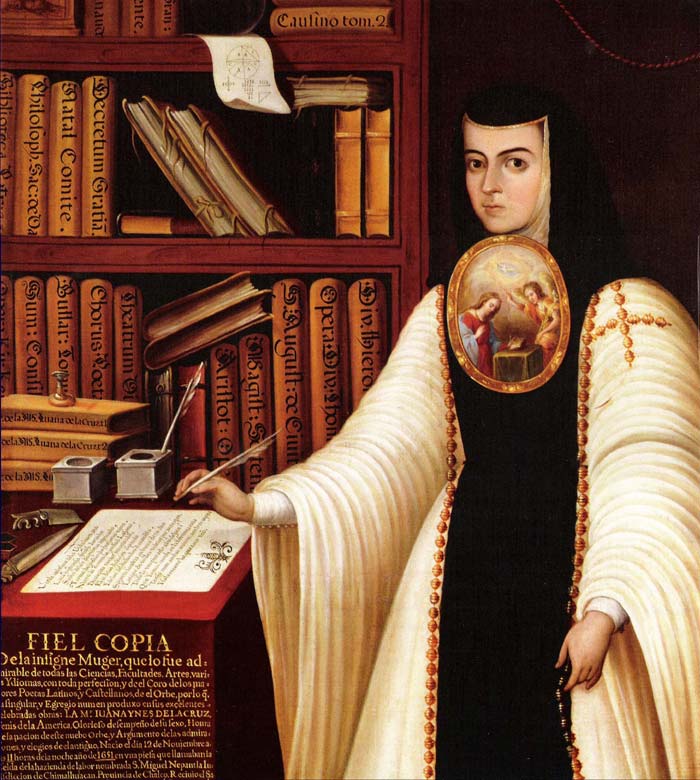
FROM THE ROOT OF KNOWLEDGE TO DOGMA
Sor Juana was driven towards all fields of knowledge, she was practising what later would be called universal knowledge and nowadays is described as multidisciplinary studies.
“I would always direct the path of my studies towards the summit of the holy Theology, in order to reach it, it seemed to me necessary to ascend the ladder of science and humanities, for […] Without Logic, how could I possibly know the general and specific methods by which the Holy Scripture is written? Without rhetoric, how could I possibly understand its figures, tropes and locutions? Without Physics, there are so many natural questions regarding the nature of animals used in sacrifices, in which many symbols had been already explained, and many more still to be explained […] Without Arithmetic, how would the measure of years, months and hours be understood […] and other matters for whose understanding it is necessary to know the nature, concord and properties of the numbers? Without Geometry, how would it be possible to measure the Ark of Covenant and the holly city of Jerusalem? […] Without Architecture, how the greatness of Salomon’s Temple, where […] that the slimmest fillet would only serve as a complement to the Arts, rather than symbolising higher concepts? Without the great knowledge of the rules and the branches of History, would the history books be understood? Without great awareness of both Laws, would legal books be understood? Without great erudition so much information about profane stories, which are mentioned in the Sacred Scriptures, so many costumes of people, so many rites, so many ways of speaking?”
“Almost simultaneously, I was studying varied subjects or stopped doing ones for others; surely in doing so I was following an order, as I called some of them study and others entertainment; this being a break from the others. It can be concluded that I have studied many things; however I know nothing, as they have hindered them. As it is clear that while the pen writes, the compass rests and while the harp plays, the organ reposes. Since too much physical practice is needed to make perfect, one that divides itself in various practises cannot make them perfect. Nevertheless, regarding the formal and theoretical, the opposite applies, and I would like to dissuade everyone with my own experience that they do not hinder, but rather shed light and open the doors by leading one to the other one, through variations and hidden links […] in a way that they seem to complement each other and are united with exquisite connection and harmony…”
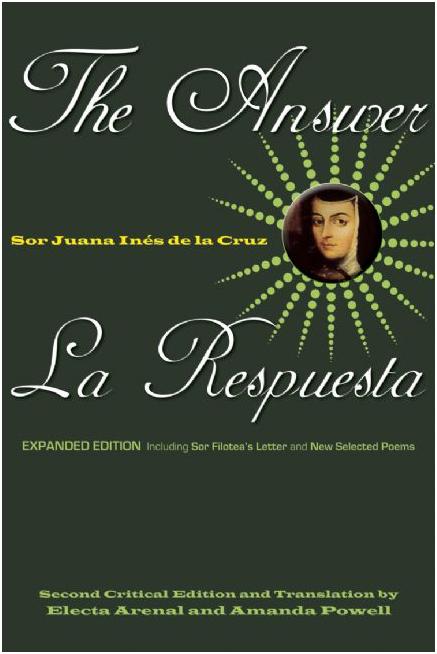
BLESSED IGNORANCE
“The gruelling of the difficulties are still to be referred […] which have precisely come to obstruct and prohibit the exercise of studying […] Those that even loving me and wishing me good […] have mortified and tormented me more than anybody else, with the following: It is not convenient to blessed ignorance that has inspired this study; it will get lost, will vanish in such highs with her discernment and sharpness”.
“That politically barbarian law from Athens which dictated that the one that would distinguish himself in garments and virtues would be exile to stop him from tyrannizing with them the public liberty still persists and it is still applied in our times”.
“It seems to some that steals the applause that they deserve or blocks the flow of admirations they aspired to, therefore, they persecute them”.
“It seems one of the impious Machiavelli’s principles: to abhor those that distinguish themselves as they overshadow others”.
“A head that is a treasury of knowledge do not expect other than a crown of thorns”.
GENDER DEFENSE
Sor Juana’s tone becomes severe when she addresses the criticism and depreciation due to her gender condition.
“… women, inept as they have been considered… men, who simply for being men think they are sages”.
“If those, my Lady, were merits (as I see, as such to be praised in men)”.
Sor Juana mentions various virtuous women: Deborah issuing laws and governing, the wise Queen Sheba that “dares to test the wisdom of the greatest of the sages by posing riddles without being admonished for this”, Abigail and her gift of prophecy, the persuasive Esther, the pious Rahab, the determined Hannah… Among the Greek, Aspasia of Miletus, the teacher of Pericles, Leoncia, who debated the philosopher Theophrastus. A “great bunch of wise, dreaded, praised women who were also revered as such in ancient times”. The scholar Paula, saints, nuns, pious celebrated for their wisdom.
«Oh! How many damages would be excused in our republic if our elderly women were knowledgeable!»
Octavio Paz writes: “from the lips of a nun causes perplexity to name Hypatia of Alexandria, beautiful and intelligent, virtuous and wise, Neoplatonist philosopher who was assassinated in March 415 by a gang of Cristian monks. It is impossible that Sor Juana would ignore Hypatia’s murder’s circumstances, a martyr, not of the faith that she professed but of philosophy. ..Her admiration of those illustrious women was stronger than the fear of breaching the limits of orthodoxy. She was fighting an interior battle of opposite believes: Christianity and feminism, religious faith and love of philosophy. Frequently and dangerously, the latter would triumph. Such an admirable courage” (Sor Juana Inés de la Cruz or the Traps of Faith, 1982).
Graffiti in the city of Puebla:
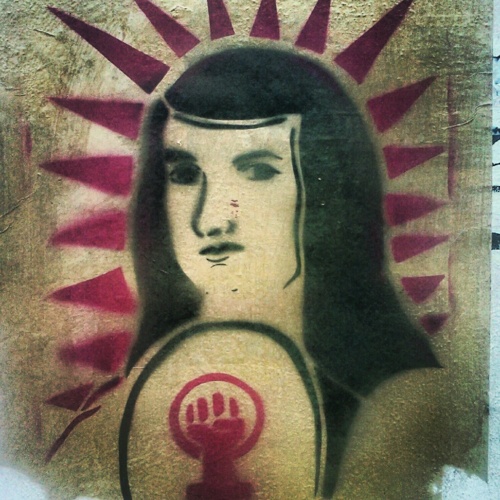
FROM OBEDIENCE TO TIRANY
The refutation to the preacher Vieira, published and titled Letter worthy of Athenea (worthy of Athenea’s wisdom), as well as her Reply…, brought “obscure complications” to Sor Juana, highlights Irving Leonard. “It seemed to her that all of her supporters were giving up, either because they were absent, had deserted her or had died. Furthermore, she never enjoyed the favour of the misogynist archbishop Francisco de Aguiar y Seijas”.
Pressure and admonitions drove her to separate herself from what she valued the most, her books. She gifted some of them, sold the rest together with her mathematical and musical instruments. The money raised was handed to archbishop Aguiar to help the poor, while Sor Juana would devote herself to acts of excessive penance and autoflagelation.
Octavio Paz states that everything started by mutual agreement between Sor Juana and the archbishop of Puebla; however, he changed the terms of the agreement with the recrimination included in the Letter worthy of Athenea.
Thus, Sor Juana would have found herself trapped in the middle of a rivalry that dated from 1680-81 when the new archbishop of Mexico was designated in Madrid. Both, Aguiar y Seijas (great admirer of preacher Vieiras sermons) and the archbishop of Puebla, Fernandez de Santa Cruz, aspired that position. The latter would have seen an opportunity to question the archbishop’s preferences by publishing Sor Juana’s well versed and clever refutation, even though he played it safe in two ways: he used the pseudonym Sor Filotea and admonished Sor Juana that her talents were more focused on the humanities than the secular studies (Sor Juana Inés de la Cruz or the Traps of Faith, 1982).
Without, disregarding the intrigues of power, other specialists disagree regarding the origin of the Letter worthy of Athenea. They highlight that, like many other of Sor Juana’s writings, the refutation must have come up from a conversation. The interlocutor probably asked her to put her thoughts in writing, which was frequent and the nun would consider it a “precept”, which she would commit herself to fulfil it as a sign of “obedience”. It is supposed that the interlocutor would have written copies, one of them came into the hands of the archbishop of Puebla, who had it published (Antonio Alatorre and Martha Lilia Tenorio, «Sor Juana y Serafina», 1998).
In 2010, the Carta de Puebla letter was identified, which is a missive from Fernandez de Santa Cruz to Sor Juana that followed the Reply to Sor Filotea. The letter, that could be called the Reply from Sor Filotea, was in the ecclesiastic archives of the Palafoxiana Library. In this letter, the archbishop of Puebla acknowledged that Sor Juana was one of the exceptional geniuses and he advised her to continue with her studies and her literary work.
In reality, the ecclesiastic hierarchy did everything that was needed to silent and control the insolent nun. They did succeed.
[ Gerardo Moncada ]* Translation: Florangeli Paredes.


